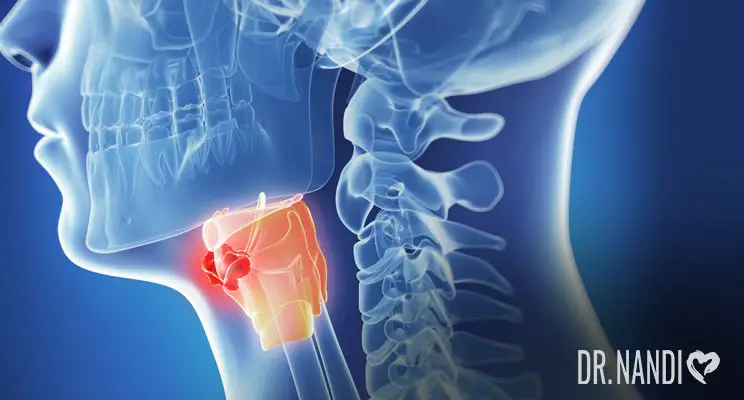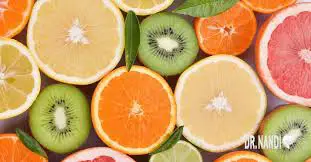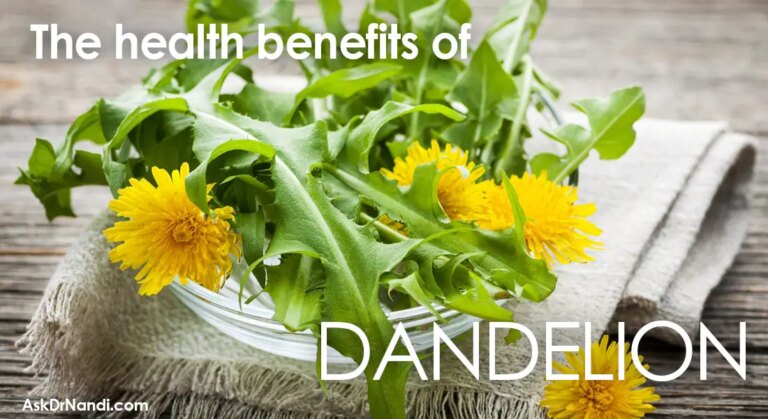Inflammation is your body’s natural defense system against harmful invaders. Acute inflammation is short-lived and essential for healing. Chronic inflammation, on the other hand, is a serious issue. It develops due to dietary and lifestyle choices, as well as environmental factors. It is a silent killer that contributes to most chronic diseases and it contributes to 7 out of the top 10 causes of death in the US. Understanding inflammation is the key to fight it and reclaim your health.
In this post, I want to discuss inflammation in depth so you can have a better understanding of the condition, what it is, what causes it, how it affects your body, and what conditions are associated with it.
What Is Inflammation?
Inflammation is your body’s natural defense against viruses, bacteria, fungi, damaged cells, and so on. When your body notices foreign invaders or experiences an injury, it protects itself and promotes healing through inflammation.
There are two different types of inflammation: acute and chronic. Acute inflammation is beneficial to your body when it comes to injuries, allergens, and short-lived illnesses. When inflammation becomes chronic and out of control, however, it becomes a problem and leads to disease in your body.
Acute Inflammation
Acute inflammation is a positive, protective, and healing mechanism. It is a friend. If you fall or cut yourself, you will experience pain, redness, bruising, swelling, and scabs.
If you catch a cold or experience seasonal allergies, you may have redness in your eyes, runny nose, and pain. Skin infections and allergies to certain household products or clothing may lead to rashes, redness, and itchiness. All of these symptoms are your body’s way of protecting you and help speed up your healing process. In some cases, like acute appendicitis, the pain and other symptoms of acute inflammation serve as an alarm that something is wrong and treatment is necessary.
Acute inflammation is short lived. It only lasts for a few days to a few weeks or until the issues are resolved, then everything goes back to normal. (1)
Chronic Inflammation
Chronic inflammation is where the real problem lies. It is a sign that things got out of control. Instead of attacking true invaders, the body begins attacking itself.
Chronic inflammation is usually caused by lifestyle choices, such a toxic and unhealthy diet, an altered gut flora that is out of balance, lack of sleep, lack of exercise, or too much stress. Environmental factors, such as using toxic cleaning products, bad air quality, and working around toxins can play a role as well.
Your body is smart and knows that processed foods, chemicals, stress, and other unhealthy factors are not good for its optimal well-being. It starts to see bad foods, unhealthy lifestyle choices, and environmental distress as invaders. Doing its best, the body tries to fight them off through inflammation. The problem is that unlike a small cut, temporary seasonal allergies, or stomach bugs, these factors are not going away as long as you are eating the same unhealthy diet, continuing to experience stress, not sleep, and not exercise, and being exposed to environmental toxins. Your body will continue its fight, fighting harder and harder without results. Eventually, it will end up mistaking inflammation itself for disease, mistaking its own tissue for foreign pathogens and killing it off.
Chronic inflammation leads to all kinds of weird symptoms, such as pain, brain fog, joint pain, depression, tummy troubles, headaches, and more. Chronic inflammation is responsible for most chronic disease cases. It contributes to 7 out of the top 10 causes of death in the US. Unlike acute inflammation, chronic inflammation can last for a long time, months, years, or even a lifetime. The good news is that you can improve and even eliminate chronic inflammation through better food and good lifestyle choices. (1, 2, 3)
Symptoms Of Chronic Inflammation
- Digestive issues, including gas, bloating, constipation, diarrhea, acid reflux, etc.
- High blood glucose
- Weight gain, especially around your waist
- Fatigue and constant exhaustion
- Sleep troubles
- Depression and anxiety
- Brain fog
- Skin problems, including psoriasis, eczema, acne, redness, or puffiness
- Headaches and migraines
- Allergies symptoms
- Gum disease
- Frequent cold and illness
- Joint and muscle pains
- Lingering, unexplained, and random pains
What Causes Chronic Inflammation?
Your body is an incredibly complex and intelligent system that is designed to keep good stuff in and bad stuff out. You have a thick layer of skin and a skeletal system that protects your organs and also makes it difficult for invaders to enter. However, there is one part of your body that is the most vulnerable to damage and intrusion- and that is your gut.
The root of inflammation begins with what you are putting in your mouth.
Your gut is designed to take stuff in from the food you eat for energy, healing, building blocks for cells, etc. There is only a ONE cell layer between your blood and your food. Your body is designed to take in very specific vitamins, minerals and micro-nutrients from real foods. Anything else that enters the body is basically unrecognizable and labeled as such.
When you eat heavily processed foods, refined sugars, preservatives, and other unnatural ingredients, your body does not know what to do with them. There may not be any problems if you eat it once or twice, but when you eat it over and over again the body will act defensively and mount an inflammatory response.
As you continue to eat the foods, the inflammation will continue and slowly damage the cell layer of your intestinal lining.
On a microscopic level your cells start split apart and eventually leave gaps in your intestinal wall. When there are gaps in the intestinal wall, foods can leak through into your blood stream undigested which is the definition of Leaky Gut Disease.
Symptoms of Leaky Gut include:
- Pain
- Fatigue
- Nutitional deficiencies
- Weakened immune system
- Brain fog
- Memory trouble
- Chronic diarrhea or constipation
- Gas and bloating
- Skin breakouts, rashes, eczema, rosacea
- Mood disorders
- Intense cravings
- Autoimmune disease
When it boils down to inflammation and where the cascade of chronic inflammation first begins, I have found it almost always starts in a person’s gut. Once it has become chronic in the gut, the inflammation then begins showing up in other areas of the body as the damage deepens and continues.
Antibiotics and Inflammation
Even if you have a healthy diet, there is another “atomic bomb” for the gut. This is antibiotics. Although lifesaving in many cases, most people are not educated on how they can also wipe out your entire microbiome and lead to inflammation and health problems IF you do not work to heal your gut during and after each round.
If and when you are taking antibiotics, I highly recommend using the following protocol to restore gut integrity and maintain good health:
How To Heal Your Gut During And After Antibiotics
- Avoid food that comes from a box or can. For several weeks after a round of antibiotics I strongly recommend sticking to whole, real foods and avoiding processed and boxed meals and snacks. This means you should be cooking at home using fresh vegetables, fruits, raw nuts and seeds, herbs and spices, clean meats and some dairy. Do this for several weeks and then ease back in to an 80/20 diet where 80% is healthy, whole foods and 20% you can have some flexibility and eat a few not-as-healthy snacks and treats as desired.
- Eat fermented foods daily. In almost every culture around the world, fermented foods are a part of a person’s daily diet. This is not normal in American culture, however. I recommend consuming fermented/probiotic rich foods at least once daily. This may include miso, sauerkraut, kimchi, kombucha, kefir, kefir water, natto, fermented veggies, high-quality greek yogurt, etc.
- Use a high-quality probiotic supplement. If you do not think you can consume many fermented foods, take a daily probiotic supplement. There are a lot of probiotics on the market that are weak and low-quality that will not bring you much benefit, so ask your doctor for a recommendation.
Your gut microbiome contains 100 trillions of bacteria cells. If damaged or wiped out, these number cannot be built overnight. Be patient and consistent with your gut-healing protocol and adopt a life-style that will always support your gut.
Dairy And Gluten
Most people are able to digest dairy and gluten just fine. For some people who have dairy and gluten sensitivities, however, consuming these ingredients can trigger inflammation. If the sensitivity is not realized, the inflammation can become chronic and slowly worsen a person’s health and vitality.
If you have symptoms of dairy and/or gluten sensitivity, I recommend visiting your healthcare professional to be officially tested. They will help decide if your symptoms are being caused by these foods or something else. If you do have trouble digesting these foods, you can come up with a plan to eliminate them from your diet.
Health Conditions Associated With Chronic Inflammation
Heart Disease
Ongoing chronic inflammation becomes a major contributor to cardiovascular disease. Researchers have examined thousands of arteries only to find that the foods can create small injuries that can cause the body to respond with inflammation that can lead to heart disease. Inflammation is an integral part of atherosclerosis, which refers to the cholesterol layers, or plaques, that are often found along the inside of our blood vessels and can lead to heart disease. Doctors use a test for inflammation called CRP (C-reactive protein) to determine your risk of heart attack. (8, 9)
Arthritis
When you have arthritis it means that your joints are inflamed and you may experience stiffness, swelling, and pain. There is inflammatory arthritis, also referred to as rheumatoid arthritis (RA) that is clearly linked to inflammation. There is also another form, osteoarthritis (OA) that is non-inflammatory arthritis. OA is related to wear and tear, but can still be related to inflammation of the joint as a result of a breakdown of cartilage. (10)
Autoimmune Disease
Autoimmune diseases are a phenomenon in which your immune system mistakenly attacks your own body. Research has linked autoimmune conditions to inflammation in your body. There are many autoimmune conditions out there, including rheumatoid arthritis, lupus, multiple sclerosis, insulin-dependent (type 1) diabetes, Crohn’s disease, and ulcerative colitis. (4, 5)
Auto-inflammatory Disease
Inflammatory Bowel Disease, conditions where your intestines become inflamed, such as Crohn’s Disease and Ulcerative Colitis are other diseases where inflammation plays a role. Some believe that IBDs are autoimmune conditions, while others argue that they are somewhat different and should be categorized as auto-inflammatory conditions. (6)
Depression
It has been long believed that depression and other mental health conditions are as a result of an imbalance of chemicals (particularly serotonin and norepinephrine) in your brain. There is increasing evidence, however, that depression is actually linked to a low-grade chronic inflammation in your body. Brain scans can notice neuroinflammation in those with depression. Research has also found that those with depression had 46% higher levels of C-reactive protein (CRP), a marker of inflammatory disease (10)
Alzheimer’s Disease and Dementia
Research has linked chronic inflammation, in particular neuroinflammation in older adults to cognitive decline, Alzheimer’s and dementia. It has also found that those taking anti-inflammatory medicine had lower chances of these diseases. (11, 12)
Diabetes
Research shows that there is an interaction between inflammation, diabetes, obesity, and metabolic syndrome. Inflammation causes insulin resistance. Insulin resistance is the main cause of Type 2 Diabetes. High blood sugar levels trigger inflammation that leads to damage in your blood vessels. Without lifestyle changes, the cycle of inflammation and diabetes continues. (13, 14)
Cancer
Chronic inflammation can lead to DNA damage which can further lead to cancer. People with inflammatory conditions, such as IBD, or illnesses related to inflammation, such as autoimmune conditions, are at a higher risk of cancer. Moreover, cancer in your body can lead to even more inflammation which can trigger the growth and spreading of cancer. (15, 16, 17)
Allergies
Exposure to allergens can result in acute inflammation. However, persistent exposure to allergens can result in chronic inflammation, higher immune response, more severe symptoms, and further allergies. (18)
Gout
Gout is an intense acute inflammatory reaction and is the result of the result of excess uric acid in the body, a condition called hyperuricemia. Chronic inflammation can lead to more bouts of gout. (19, 20)
Kidney Disease
Chronic, low-grade inflammation associated with chronic kidney disease (CKD) can cause the retention of pro-inflammatory molecules in your blood, such as AGEs, homocysteine, and cytokines. This can increase symptoms and accelerate the progression of the disease. (21)
Osteoporosis
The cells that break down bone tissues, knowns as osteoclasts, are stimulated by a pro-inflammatory environment. People with higher inflammation in the bodies or diagnosed with inflammatory conditions are more likely to experience bone loss and osteoporosis.
5 Step Plan To Reduce Inflammation And Boost Vitality
Here are 5 steps to successfully reduce inflammation and improve overall health and vitality.
#1 Adopt An 80/20 Mindset With What You Eat
Unless unique and/or restrictive medical conditions are of concern, I recommend all my patients to use an 80/20 mindset when choosing what to eat.
80% of the time you should be eating healthy, wholesome, nurtient-rich foods. Eat a balance from the following food groups:
- Fresh fruits and vegetables
- Raw nuts and seeds
- Herbs and spices
- Dairy
- Clean meats
- Whole grains
- Healthy fats and oils
- Fermented foods
20% of time you can have a little from the following categories:
- Processed foods and snacks
- Candies and chocolate
- Sugary treats
- Fatty foods/fast foods
- Refined sugars
- etc
Remember, if you go through a round of antibiotics or are starting from a place of severe inflammation or a diseased state, I recommend eating from the healthy food categories 100% of the time. Do this until you restore proper gut balance and immunity. Your doctor should be able to help you determine how long you should stay on a more strict dietary lifestyle, as it may vary depending on the person and circumstances.
#2 Increase Intake Of Anti-Inflammatory Foods
The following have been studied for their abilities to lower inflammation in the human body. Try to have at least one or two of the following daily (24, 25, 26).
- Turmeric
- Ginger
- Green leafy vegetables
- Blueberries
- Pineapple
- Celery
- Bone broth
- Walnuts
- Coconut oil
- Beets
- Fatty fish
- Mushrooms
#3 Keep Your Body Moving
The more I study the human body and work as a physician, the more I realize how important it is to stay in motion. I am not talking about exercise necessarily, though that can certainly be a healthy habit. I am talking about creating regular habits of movement during normal waking hours.
Our ancestors moved much more then we do now. The body is made to move and thrives in an active lifestyle. You have a heart that beats 24/7, blood flowing continuously through your veins, a digestive system that is always available and in action, organs that are functioning constantly, a nervous system always reacting to stimuli, and a brain that never sleeps. You are not a rock or an object meant to be sedentary. Every cell in your body is made to MOVE.
When we live a sedentary lifestyle, our bodies become stagnant and we develop inflammation and a myriad of health issues. Think of your body like a body of water; when a river is flowing it flushes out dirtiness and is clear. When a piece of the river becomes stagnant and puddled, it slowly gets muddy and dirty and even grows toxic depending on what is dumped into it.
Instead of exercising for a set amount of time every day, develop a lifestyle filled with more movement. Never sit for more than an hour at a time without getting up and moving around. Walk as much as possible. Park in the back of the parking lot. Go hiking every weekend. Run around and play with your kids. Join a sports team. Whatever you want! Just move.
#4 Improve Quality Of Sleep
Studies have found that poor quality of sleep is linked to increased risk for inflammation. Your body needs adequate time at night to rest, process, heal and regenerate. When sleep is interrupted frequently or not enough quality sleep is achieved, it can lead to problems overtime. (27)
Here are a few tips to help you improve your quality of sleep:
- Sleep in a cool, very dark room with no electronics or blinking lights of any kind
- Avoid any screens or blue-light exposure at least 90 minutes before bedtime (if you must use your phone or computer, use a blue-light blocking app or setting
- Only consume caffeine in the morning and don’t drink any after noon
- Get at least 20 minutes of sunlight during the day
- Exercise in the morning
- Create a consistent nighttime routine
- Drink golden milk tea
- Avoid these digestive-system-disturbing foods before bed
#5 Increase Time Spent Outdoors
Did you know that the average American spends more than 80% of their life indoors? Whether it’s in their home, their office, their car or in another building, people are spending a large percentage of their life disconnected from the earth.
Studies have found that “grounding” or standing on earth (dirt, grass, etc) without a non-conductive material inbetween does wonders to lower inflammation, reduce pain and even boost immune system function. (28)
Spending time outside also increases sunlight exposure which is vital for producing adequate levels of vitamin D. Vitamin D is actually a hormone that plays a large role in reducing inflammation, improving brain function, enhancing mood and sleep and reducing risk for disease. (29)
Make it a priority to spend time outside every day (more than just walking from your house to the car!). Get at least 20 minutes of sunlight exposure if possible.
To learn more, you can purchase my full published book: 5 Steps To Becoming Your Own Health Hero.
Frequently Asked Questions About Inflammation
Q. Are inflammation and swelling the same thing?
A. No. Swelling can occur as a result of inflammation and be a sign of inflammation. However, it can occur without inflammation when it is caused by the accumulation of fluid in tissues in specific regions or throughout your body.
Q. Are inflammation and infection the same thing?
A. No. Inflammation is your body’s immune response to an infection or another harmful stimulus. Infections are caused by viruses, bacteria, and fungi. Inflammation is your body’s response to this in order to promote healing.
Q. What’s inflammation in the blood?
A. Inflammation of the blood means that your immune system, or more specifically your white blood cells, have produced and sent disease-fighting chemicals to areas of your body that’s attacked by harmful invaders. These chemicals may cause pain, redness, and swelling, similar to the signs of inflammation.
Q. When does inflammation become a disease?
A. Chronic inflammation can lead to an array of diseases, including rheumatoid arthritis, autoimmune conditions, and even cancer. The development or progression of the disease depends on person to person The longer your body is dealing with chronic inflammation, the higher your chance is to develop some form of the disease as a result.
Q. Why does inflammation cause weight gain?
A. It’s your body’s coping mechanism. When you eat unhealthy foods or foods that do not work for your body, your histamine and cortisol levels start to rise. Histamine can lead to water weight, whereas cortisol leads to fat storage. All this affects your hormone levels and thyroids that can lead to further weight gain.
Q. Why does inflammation cause pain?
A. Pain is an alarm system in your body. How would you know that you have appendicitis or a serious tooth infection without experiencing pain? Without pain, you would not be alarmed to be careful with a bruised knee, cut fingernail, or rest more with a cold or a tummy bug. Pain is your way of asking for help: slow down, be careful, and take care of me. When it comes to chronic inflammation, inflammation becomes constant even without a usual invader, like a virus or injury. Pain may become chronic too as a sign of chronic inflammation and potential disease.
Q. Are hives inflammation?
A. Hives are an inflammatory response to allergies.
Q. Are headaches/migraines inflammation?
A. Headaches and migraines can be caused by and a sign of inflammation in your body that may be caused by certain foods, structural issues, environmental stress, lifestyle choices, or certain illness and disease.
Q. Are inflammation and edema the same thing?
A. No. Edema is tissue swelling that may or may not happen as a result of inflammation.
Conclusion
Chronic inflammation is a serious issue that can lead to many uncomfortable symptoms and serious diseases. It is important to understand chronic inflammation to be proactive, reduce inflammation, and prevent health conditions through appropriate dietary and lifestyle changes. If you are experiencing any symptoms of inflammation or diseases associated with it, talk to your health professional to find the best action plan to regain your health.
Did you find the information in the post useful? What other conditions would you be interested in learning about on my blog? Comment below.
Have more questions? Ask Dr Partha Nandi MD Here!
References
- https://www.medicalnewstoday.com/articles/248423.php
- https://www.cdc.gov/nchs/data/nvsr/nvsr56/nvsr56_10.pdf
- http://articles.latimes.com/2009/aug/17/health/he-anti-inflammation17
- http://www.ingentaconnect.com/content/ben/iadt/2009/00000008/00000001/art00007
- https://www.tandfonline.com/doi/abs/10.1080/07315724.2002.10719248
- http://www.gastrojournal.org/article/S0016-5085(07)01447-3/abstract
- https://www.sott.net/article/242516-Heart-Surgeon-Speaks-Out-On-What-Really-Causes-Heart-Disease
- https://health.usnews.com/health-news/patient-advice/articles/2016-04-06/inflammation-and-heart-disease-what-is-c-reactive-protein-who-might-benefit-from-testing
- https://www.arthritis.org/about-arthritis/types/inflammatory-arthritis/
- https://www.ncbi.nlm.nih.gov/labs/articles/27337107/
- https://www.alzdiscovery.org/news-room/blog/inflammation-the-driver-of-alzheimers-disease
- https://link.springer.com/article/10.1007/s00702-004-0188-x
- https://link.springer.com/article/10.1007/s00059-004-2635-8
- http://circ.ahajournals.org/content/111/11/1448.short
- https://www.cancer.gov/about-cancer/causes-prevention/risk/chronic-inflammation
- https://www.nature.com/articles/nature07205
- http://onlinelibrary.wiley.com/doi/10.1002/wsbm.1370/full
- https://www.ncbi.nlm.nih.gov/pmc/articles/PMC3573758/
- https://arthritis-research.biomedcentral.com/articles/10.1186/ar1908
- https://www.arthritis.org/about-arthritis/types/gout/causes.php
- http://cjasn.asnjournals.org/content/4/10/1551.short
- https://www.ncbi.nlm.nih.gov/pubmed/18240539
- https://www.ncbi.nlm.nih.gov/pmc/articles/PMC1308846/
- https://www.health.harvard.edu/staying-healthy/foods-that-fight-inflammation
- https://www.ncbi.nlm.nih.gov/pmc/articles/PMC2952901/
- https://www.ncbi.nlm.nih.gov/pubmed/19594223
- https://www.ncbi.nlm.nih.gov/pmc/articles/PMC3548567/
- https://www.ncbi.nlm.nih.gov/pmc/articles/PMC4378297/























